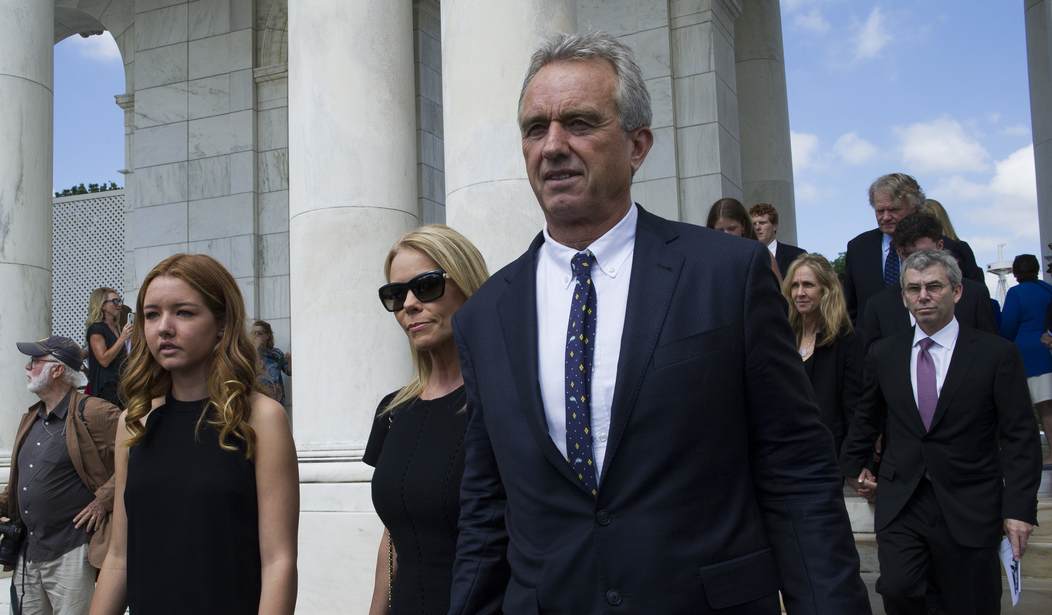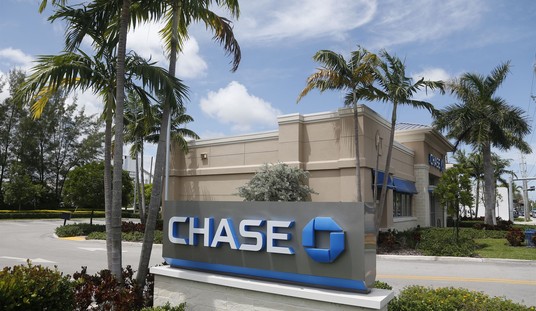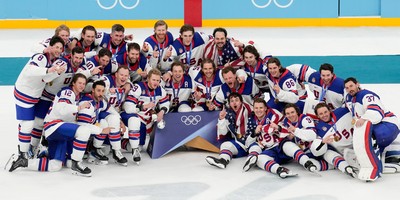Democratic presidential candidate Robert F. Kennedy Jr. said Friday the Department of Homeland Security denied his request for Secret Service protection.
“Since the assassination of my father in 1968, candidates for president are provided Secret Service protection. But not me,” he wrote on X, formerly known as Twitter. “Typical turnaround time for pro forma protection requests from presidential candidates is 14-days. After 88-days of no response and after several follow-ups by our campaign, the Biden Administration just denied our request.”
Kennedy also included a quote from DHS Secretary Mayorkas: "I have determined that Secret Service protection for Robert F Kennedy Jr is not warranted at this time."
The Democrat said his campaign’s request included a nearly 70-page report “detailing unique and well established security and safety risks aside from commonplace death threats.”
According to an NBC report, the DHS secretary "has wide latitude to decide who qualifies and why," not to mention when.
Secret Service protection has been extended to candidates for president — and not just presidents themselves — since a law was enacted in 1968, following the assassination of Kennedy’s father during his presidential campaign. According to Secret Service guidance published for the 2020 election, “major presidential and vice presidential candidates” are “eligible” for protection.
But the secretary of the Department of Homeland Security has wide latitude to decide who qualifies and why, after consultation with an advisory committee. The committee is comprised of high-level members of the government including the speaker of the House, the House minority leader, the Senate majority leader, the Senate minority leader and one additional member chosen by the committee.
The Secret Service laid out a number of other factors explaining why not every declared presidential candidate gets a Secret Service detail and what goes into making that decision. The 2020 guidance lists polling thresholds for primary candidates or third-party general election nominees. And it also says the decision could be guided by a specific assessment of threats against that candidate. (NBC)
Recommended
As a candidate, Donald Trump received Secret Service protection nearly a year before the election, while Barack Obama got it in May 2007—"nearly nine months before voting [began] in the Democratic primaries for president,” which The New York Times pointed out “is the earliest the Secret Service has ever issued a security detail to a candidate.”
Critics ripped the agency for denying the request given that his father and uncle were both assassinated, and that protection started being offered in the first place after his father was murdered. Others compared it to the treatment Hunter Biden is getting.
Hunter Biden gets a six-car Secret Service motorcade to take him to courtrooms in Delaware and Arkansas, where doors are opened and closed for him as if he were a prince. The Secret Service even rented a house next to his in Malibu for $30,000 per month. But Joe Biden has refused… https://t.co/8XMAkSB2NP
— Miranda Devine (@mirandadevine) July 28, 2023
Mayorkas, Head of The Dept. of Homeland Security, denied Secret Service Protection for RFK, Jr.—despite a number of verifiable death threats and the fact this man’s father & uncle were both assassinated.
— TexasLindsay™ (@TexasLindsay_) July 28, 2023
Truly shameful move by DHS. https://t.co/MMey0Vqcq2
Meanwhile this is the taxpayer funded Secret Service motorcade Hunter Biden receives on his way to court pic.twitter.com/X4skgKq7Hw
— Chief Nerd (@TheChiefNerd) July 28, 2023
No response after 88-days?
— Patrick Bet-David (@patrickbetdavid) July 28, 2023
While having 15% support of Democratic Party?
With a last name that has a history of needing protection?
Meanwhile, Hunter Biden arrives to court with a six-car, taxpayer-funded motorcade with secret service agents? https://t.co/jD0egeFE29
This is shocking.
— Michael Shellenberger (@shellenberger) July 28, 2023
Former Secret Service agent Dan Bongino said the decision appears politically motivated.
He’s not wrong.
— Dan Bongino (@dbongino) July 28, 2023
I’ve worked with CNOS (Candidate Nominee Operations Section) protective details for candidates with a FAR smaller campaign footprint than RFK. No way he should be denied USSS protection.
This appears to be a political decision by DHS, rather than a… https://t.co/qoFzlGkeMi

























Join the conversation as a VIP Member